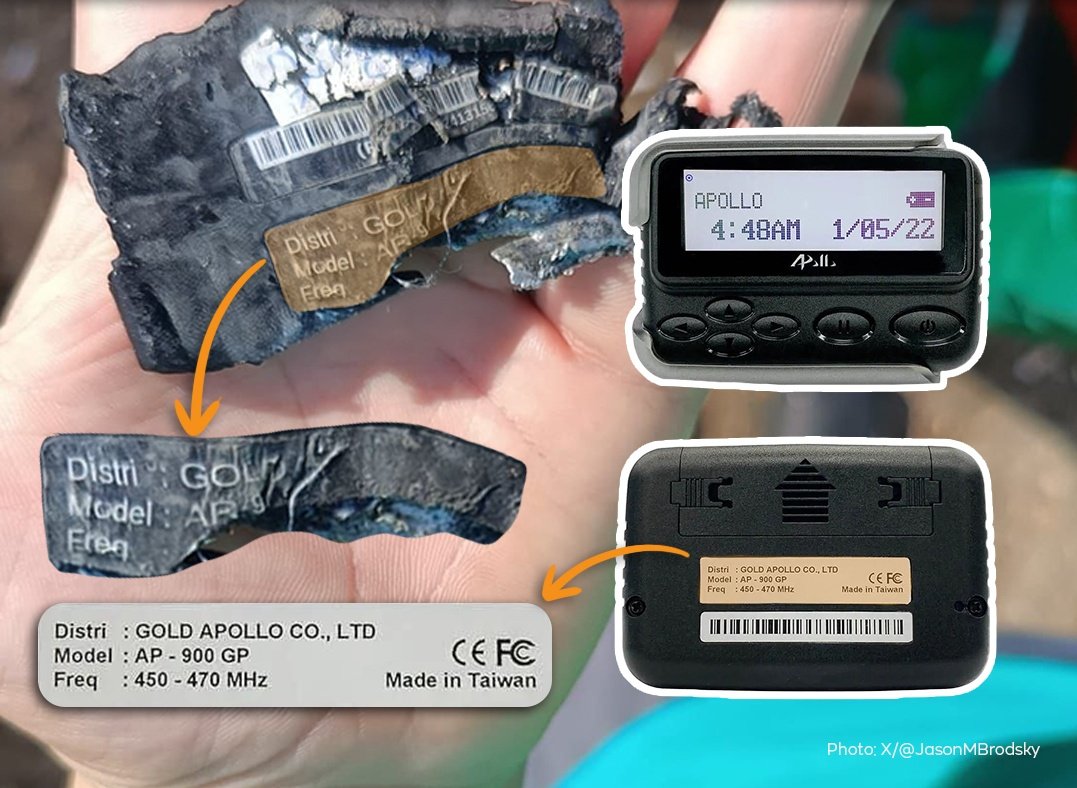News
Exploding Pagers Kill 12 & Injure Thousands In Lebanon & Syria
Several news agencies are now reporting that Israel’s Mossad was responsible for planting the devices used in the attack.

Thousands of Lebanese and Syrian citizens have been injured in an attack that used modified pagers loaded with explosives. Lebanon’s health minister, Firass Abiad, confirmed that twelve people, including a young child, had been killed. Meanwhile, the state media agency, NNA, announced that a further 2,800 people were injured.
By yesterday evening (Tuesday, September 17), the New York Times had reported that Israel was to blame for the attacks, stating: “Israel carried out its operation against Hezbollah on Tuesday by hiding explosive material within a new batch of Taiwanese-made pagers imported into Lebanon, according to American and other officials briefed on the operation”.
Israel's Mossad spy agency planted explosives inside 5,000 pagers imported by Lebanese group Hezbollah months before Tuesday's detonations, a senior Lebanese security source and another source told @Reuters https://t.co/8m4tTa4BSQ pic.twitter.com/O78WXLWUHp
— Reuters (@Reuters) September 18, 2024
Reuters also reported that it had gained information from a “senior Lebanese security source” and “another source” that Hezbollah had imported 5,000 pagers from Taiwanese manufacturer Gold Apollo. However, at some point in the supply chain, the units were intercepted and replaced with modified versions carrying explosives. The source also claimed that Israel’s Mossad spy agency was responsible, adding around three grams of high-explosive material inside the casing of each device.
The Importance Of Pagers To Hezbollah
As we have seen in both the Ukraine war and in places such as Afghanistan, smartphone communications can be deadly, as they’re relatively easy to intercept and give away the exact location of the person operating them.

For that reason, groups waging asymmetric warfare prefer to use low-tech communication methods such as hand-delivered letters or, in this case, old-school devices like pagers.
Reuters sources said 3,000 pagers exploded after 15:00 local time after being triggered by receiving a coded message. According to the New York Times, the message “appeared as though it was coming from Hezbollah’s leadership”.
Also Read: The Top 10 Worst Cyberattacks In The Middle East Revealed
Videos of the exploding pagers have already spread like wildfire across news networks and social media platforms. One shows a man at a store checkout looking down to view his pager before it explodes, pushing him backwards. Another CCTV video from a market shows a man sustaining injuries after one of the modified devices explodes in his bag.
News
Samsung Smart Glasses Teased For January, Software Reveal Imminent
According to Korean sources, the new wearable will launch alongside the Galaxy S25, with the accompanying software platform unveiled this December.

Samsung appears poised to introduce its highly anticipated smart glasses in January 2025, alongside the launch of the Galaxy S25. According to sources in Korea, the company will first reveal the accompanying software platform later this month.
As per a report from Yonhap News, Samsung’s unveiling strategy for the smart glasses echoes its approach with the Galaxy Ring earlier this year. The January showcase won’t constitute a full product launch but will likely feature teaser visuals at the Galaxy S25 event. A more detailed rollout could follow in subsequent months.
Just in: Samsung is set to unveil a prototype of its augmented reality (AR) glasses, currently in development, during the Galaxy S25 Unpacked event early next year, likely in the form of videos or images.
Additionally, prior to revealing the prototype, Samsung plans to introduce…
— Jukanlosreve (@Jukanlosreve) December 3, 2024
The Galaxy Ring, for example, debuted in January via a short presentation during Samsung’s Unpacked event. The full product unveiling came later at MWC in February, and the final release followed in July. Samsung seems to be adopting a similar phased approach with its smart glasses, which are expected to hit the market in the third quarter of 2025.
A Collaborative Software Effort
Samsung’s partnership with Google has played a key role in developing the smart glasses’ software. This collaboration was first announced in February 2023, with the device set to run on an Android-based platform. In July, the companies reiterated their plans to deliver an extended reality (XR) platform by the end of the year. The software specifics for the XR device are expected to be unveiled before the end of December.
Reports suggest that the smart glasses will resemble Ray-Ban Meta smart glasses in functionality. They won’t include a display but will weigh approximately 50 grams, emphasizing a lightweight, user-friendly design.
Feature Set And Compatibility
The glasses are rumored to integrate Google’s Gemini technology, alongside features like gesture recognition and potential payment capabilities. Samsung aims to create a seamless user experience by integrating the glasses with its broader Galaxy ecosystem, starting with the Galaxy S25, slated for release on January 22.


























